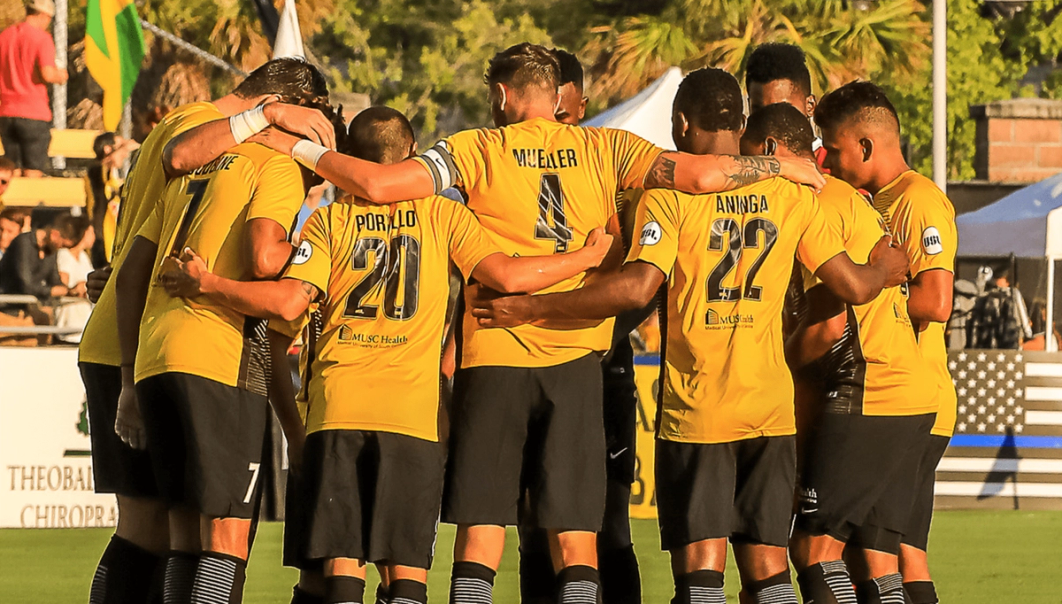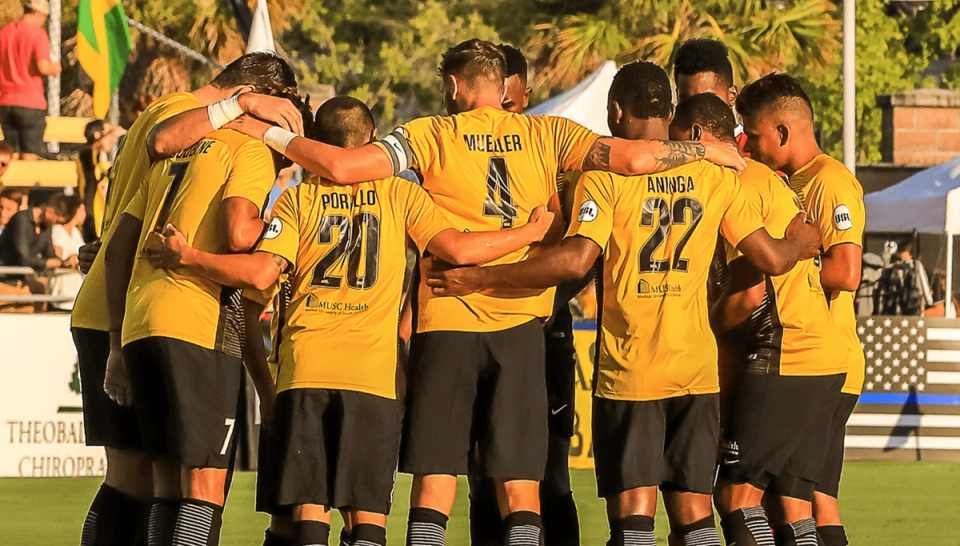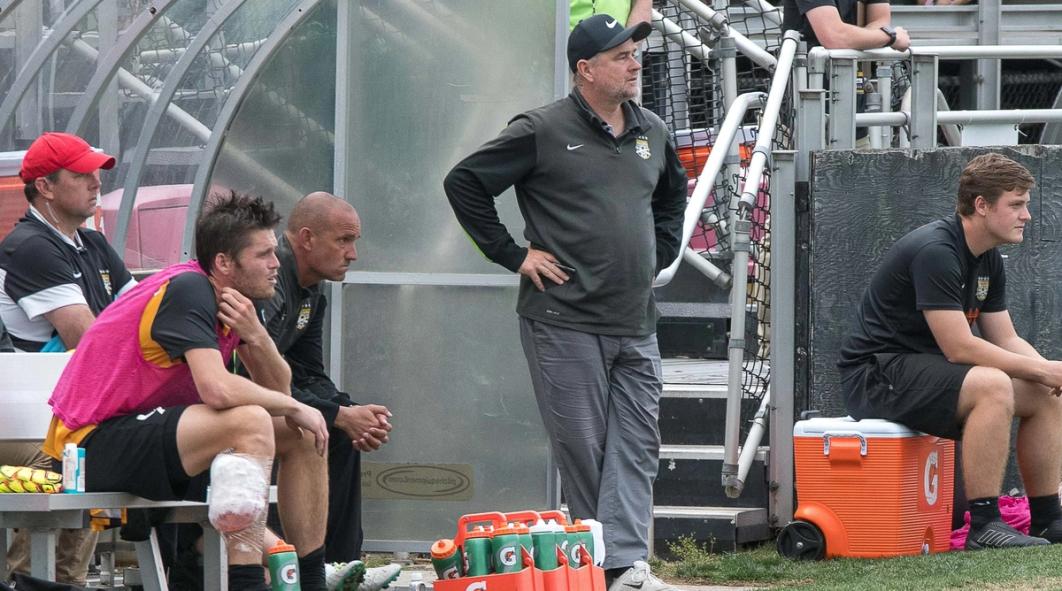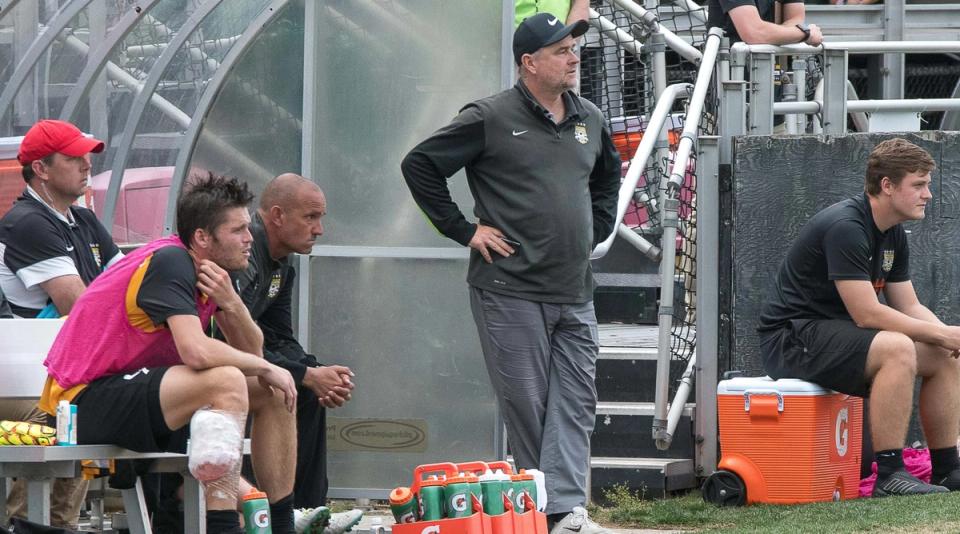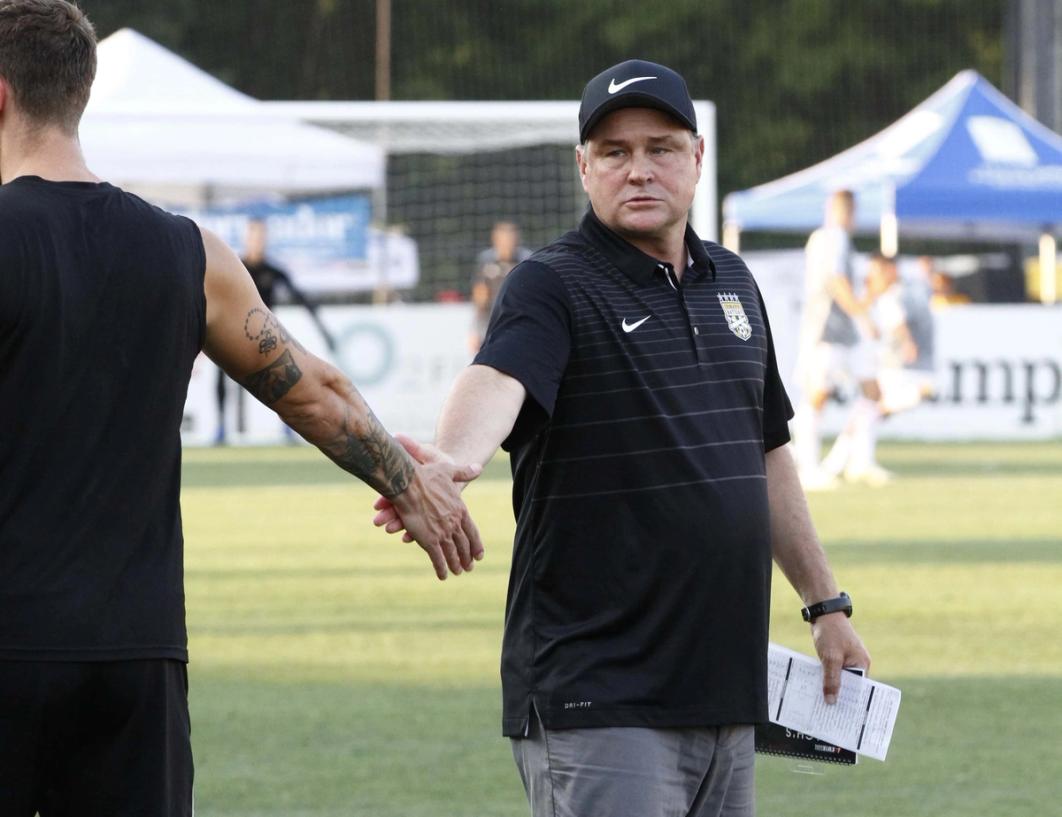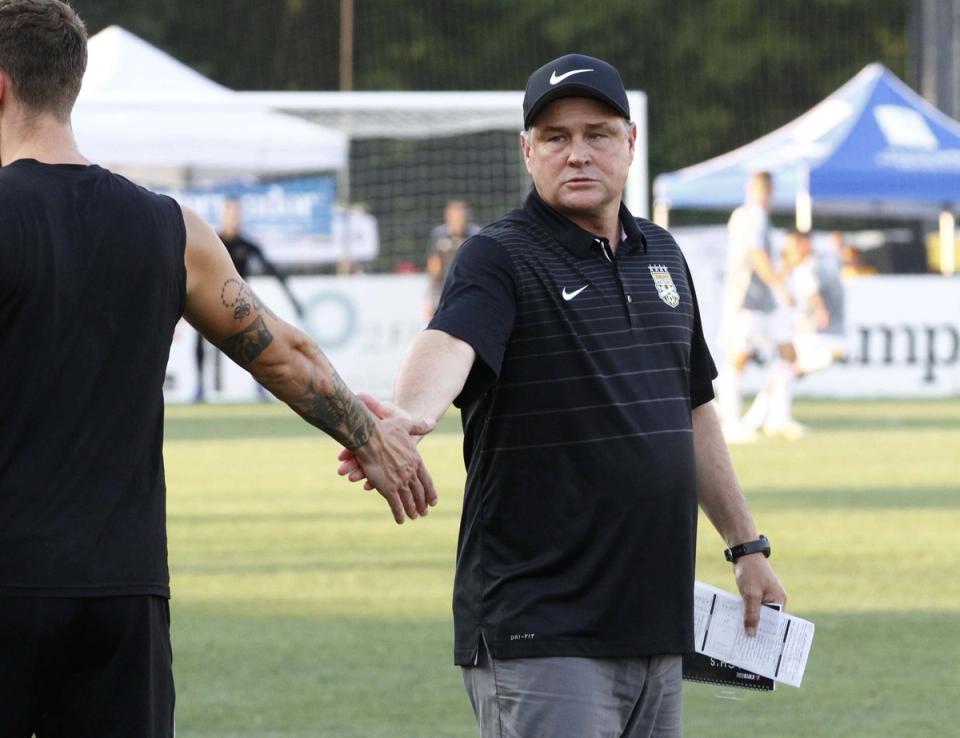You can’t talk about the Battery and the Open Cup without talking about 2008, when you guys went all the way to the Final.
MA: That year showcased and enforced the Cup as something really important at the club. We put a lot of onus on winning it. We had Lazo Alavanja [a former collegiate star at Indiana University, like Anhaeuser], Osvaldo Alonso [who went on to become a 11-year MLS vet with Seattle Sounders], Ian Fuller [Minnesota United assistant coach], Marco Reda [Canada international] and Randy Patterson [of New York Red Bulls and Trinidad & Tobago]. We had experienced guys. We had about five or six guys in the team that just had that pure winning mentality. You can’t overestimate what that means. It didn’t matter who we played against, they had the quality to compete and to win on the day. But we had the quality back then too. Oh yes we did.
Is it harder these days for a non-MLS team to make a deep run in the Cup?
MA: It was easier back then because you were probably only going to have to get past two, or maybe three, MLS teams. But now it’s more like four or five. It keeps getting harder and harder. We try to keep it at the same level here at the Battery and strive for success. I play a lot of my starters in the early rounds; not everyone does that. In the old days, MLS teams didn’t want a home game, so we got to play a lot at home. But it’s not like that any more. It’s another edge lost; it makes it that much harder
Is it tough to find a balance between league play and Cup play with a USL team?
MA: Is it hard to find a balance? Yeah, definitely. When you have a smaller roster like we do it’s not ever easy to find the balance [laughs]. You’ve got games coming at you all the time. Saturday, Wednesday, Saturday, Wednesday. You’re burning all the time. It’s nice to get a break, but it doesn’t always come and you have to find the balance between using some young guys and really pushing, really leaning, on your experienced players. If you pick up an injury – which happens when you’re playing a lot of games – then you’re scrambling. Then you have to shuffle your pack and improvise.
Was there much scrambling and shuffling in 2008?
MA: I was playing starters in the Cup from the beginning, putting a focus on it. I’d bring in new guys for the league games sometimes, rookies and guys without too much experience. You needed them, and you might lose some of those league games, but you have to prioritize in years like that. Those are special times and you have to recognize it. We had a lot of home games in 2008 [Just two of their six games were on the road that year]. That helps.
Does succeeding in the Open Cup require a special intensity?
MA: I compare it to the NCAA [basketball] tournament. I think it’s like that in a lot of ways. It has the same feeling and the same intensity. It’s one-and-done. I’m a big fan of this. That format brings out something special. You need luck, sure, and a bit of quality on the day. We won many games on penalties in 2008. We beat Seattle in a shootout. You need all those things to fall into place, but it’s no different than Loyola-Chicago in the NCAA tournament last year. You have those guys people don’t know about and that’s important – you need those hungry guys trying to go higher.
Do your players today understand the meaning of those successes 11 years ago?
MA: It’s helped us here that we’ve had success in the Cup. It gets in their belly. I can show them what it’s like and that it can be done. They know it when they’re here. But all of that just helps a little – what’s really important is that we beat Atlanta United [Their Fourth Round Open Cup opponent for the third straight year]. That’s what really matters. The past and the tradition, that just helps us a little before the opening whistle.
It’s obvious that the Open Cup has special meaning for you.
MA: It’s not just me. For our club, the Open Cup is huge. I say that before the first game to my guys, “If you win this, you’re playing an MLS team.” It’s the first statement I make and I make sure my players know what I’m saying. I believed it as a player and I believe it as a coach: all players want to play the best. That’s a given. And MLS aren’t just throwing out reserve teams in the Cup. It’s changing and evolving. The Open Cup has taken two steps forward. The prize money is up – it’s 300,000 now to the winner and that’s a bump. One more sponsor here or there and it could be huge in American sports.
You mentioned being hungry. How important is that in the Cup, as a team and as individuals?
MA: Well, we won’t get anything out of Atlanta United unless we’re hungry. Having guys who are hungry to show what they can do and to take the next step is huge. You’re putting yourself in the shop window in a big way as a player. It makes a big difference if a coach sees you first-hand instead of on tape – a massive difference.
